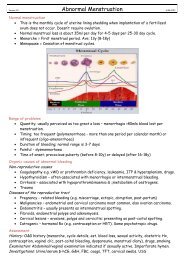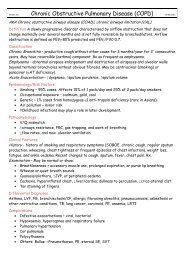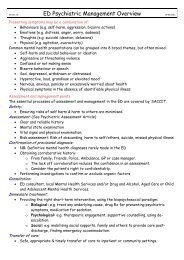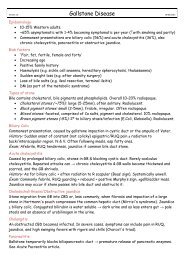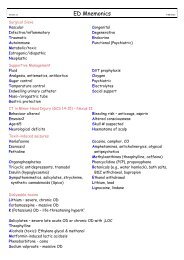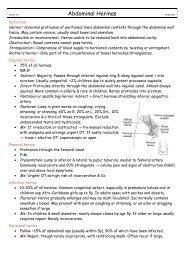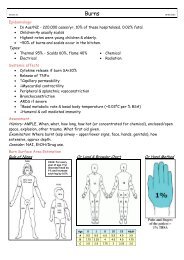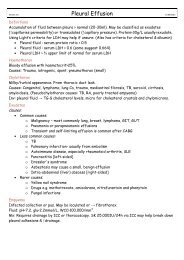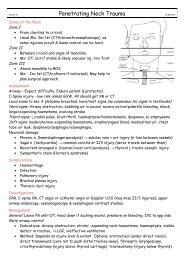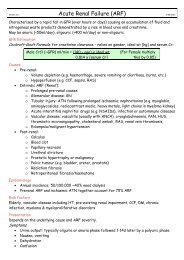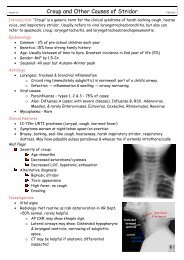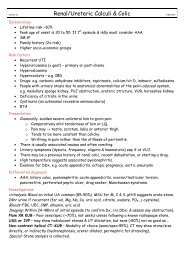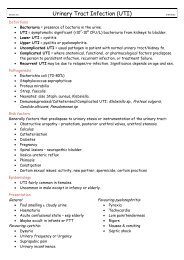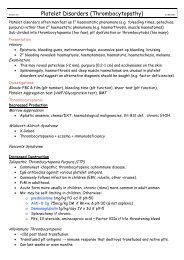Diabetes Mellitus
Diabetes Mellitus
Diabetes Mellitus
Create successful ePaper yourself
Turn your PDF publications into a flip-book with our unique Google optimized e-Paper software.
Examination• General examination – including height/ weight/ BMI• Examination of feet (e.g. ulcers, loss of sensation) & eyes (e.g. cataracts, retinopathy)• Blood pressure measurement & examination of peripheral pulsesDiagnosisWHO criteria:• Symptoms of diabetes (weight loss, polyuria, polydypsia)• A fasting blood glucose ≥7.0mmol/L• Random or 2h post-OGTT (75g glucose) plasma glucose >11.1mmol/LInvestigations• BMI• Urine albumin excretion (microalbuminuria 30-300mg/day)• Urine protein (diabetic nephropathy if albumin loss >300mg/day)• HbA1c• U&Es, estimated GFR• TFTs in young diabetic & lipid profile• ± Islet cell antibodies/ C peptide deficiency• Test for coeliac disease in young diabetic.ComplicationsMicrovascular: neuropathy, nephropathy and vision disorders (eg retinopathy, glaucoma,cataract and corneal disease).Macrovascular: heart disease, CVA, PVDOther: DKA, HONK, hypoglycaemia (from Rx), infections, metabolic probs, impotence, autonomicneuropathy and pregnancy probs.General ManagementGeneral aims: prevent, identify & treat diabetes and Cx (may be ↓ by good/tight BSL control)Usual goals:• Lifestyle changes – weight, diet, exercise, smoking cessation• Fasting blood glucose levels of 4-7 mmol/l• 3-6monthly HbA1c levels of 6.5% or below• BP ≤130/80 mm Hg• Total cholesterol level should be ≤4.0 mmol/l, LDL level ≤2.0 mmol/lRegular reviews (at least annually) - check goals, feet, eyes. Also rpt UEC, urine protein.Drug Management of Type 1 <strong>Diabetes</strong>Insulin Therapy and Blood Glucose Monitoring• Agree on most appropriate insulin regime:o Twice daily regimes using isophane (NPH) insulin or long acting insulin analogues(insulin glargine).o Multiple injection regimes using unmodified or "soluble" insulin or rapid-actinginsulin analogues, with a longer acting insulin at night are suitable for wellmotivated individuals with a good understanding of disease control, or those withactive or erratic lifestyles.• Monitoring of blood glucose• Give advice on how to change the regime in case of illness and how to recognise ahypoglycaemic episode and what action to take



